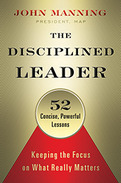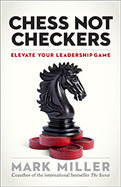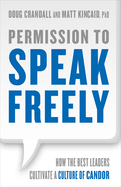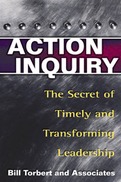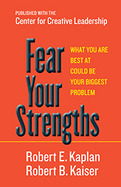All leaders have scores of things they could do. But a disciplined leader is one who identifies and focuses on the Vital Few: the 20 percent of activities that will drive 80 percent of the results. And the results that are most important are those tied to the organization's most precious asset: its people.
The Disciplined Leader offers fifty-two succinct lessons to help you home in on your own Vital Few in three critical areas: leading yourself, leading your team, and leading your organization. Each lesson comes with recommended tactics and practical “Take Action!” tips for implementing it, so there are literally hundreds of pieces of must-know, time-tested advice here. The chapters are self-contained, so you can read them in any order and come back to the ones that resonate with you—your own Vital Few! This is a hands-on, nuts-and-bolts guide to leadership practice that's built to inspire action, drive change, and achieve results.
2015
The early days of an organization are like checkers: a quickly played game with mostly interchangeable pieces. Everybody, the leader included, does a little bit of everything; the pace is frenetic. But as the organization expands, you can't just keep jumping from activity to activity. You have to think strategically, plan ahead, and leverage every employee's specific talents—that's chess. Leaders who continue to play checkers when the name of the game is chess lose.
On his journey, Blake learns four essential strategies from the game of chess that transform his leadership and his organization. The result: unprecedented performance!
Candid communication enhances innovation, ownership, engagement, and performance. The benefits of hearing questions and uncertainties, good and bad ideas, and honest feedback are game-changing. Yet research shows that most of the time, people never share their true thoughts with each other—and especially not with their leaders.
But what if they did? What if everyone could confidently communicate without fearing a negative response? In Permission to Speak Freely, highly acclaimed leader developers Doug Crandall and Matt Kincaid illustrate the benefits of candor, explain the inhibitors that cause it to feel unsafe, and provide tools for leaders to encourage their people and embed trust and openness into the foundation of their organizational culture.
Sometimes you get only one chance. A good introduction can create connections and open doors. A bad one can make conversation fizzle and opportunities fade. What you need is a story that tells who you are—authentically, compellingly, and concisely—and can be adapted to fit any situation. Created for dynamic beings constantly redefining themselves, their work, and the world around them, Tell Me About Yourself pairs interviews and case studies with a simple, scalable framework, helping you craft and deliver comprehensive, compelling, and generally kick-ass introductions and personal stories for yourself, your team, or your company. In an ever-changing innovation economy and a climate that demands we put our best foot forward to create change, there's no better time to learn how to articulate your usefulness to the world.
2004
- Offers a powerful method that leaders in organizations of all types can use to increase the timeliness and effectiveness of their actions
- Provides numerous real-world examples of action inquiry in action
- Includes exercises individuals and organizations can use to begin practicing action inquiry
Bill Torbert and associates illustrate how individuals and organizations can progress through more and more sophisticated "action-logics" -- strategies for analyzing the world and reacting to it -- until they will eventually be able to practice action inquiry continually. Offering action inquiry exercises at the end of the chapters, the book moves from junior managers beginning to practice action inquiry through CEO's transforming whole companies, to world leaders transforming whole countries, as exemplified by Czech president Vaclav Havel. Through short stories of leadership and organizational transformations, this groundbreaking book illustrates how action inquiry increases personal integrity, relational mutuality, company profitability, and long-term organizational and environmental sustainability.
2013
This book takes on the "play to your strengths" fad to show how your strengths can actually betray you.
Takes on the "play to your strengths" fad to show how your strengths can actually betray you- Features tools for keeping your strengths in balance as well as numerous examples of executives from varied backgrounds and companies
- Published in collaboration with the Center for Creative Leadership, a top-ranked, global provider of executive and leadership education
Once you've discovered your strengths, you need to discover something else: your strengths can work against you. You can have too much of a good thing.
Many leaders know this on some intuitive level, and they see it in others. But they don't see it as clearly in themselves. Mainly, they think of leadership development as working on their weaknesses. No wonder. The tools used to assess managers are not equipped to pick up on overplayed strengths. Nowhere in most assessments is there language or diagnostics that can reveal when someone is overdoing it-when more is not better.
Nationally recognized leadership experts Bob Kaplan and Rob Kaiser have conducted thousands of assessments of senior executives designed to determine when their strengths are betraying them. They draw on their data to identify four fundamental leadership qualities, each positive in and of itself but each of which, if overemphasized, can seriously compromise your effectiveness. Most leaders, they've found, are "lopsided"-they favor certain qualities to the exclusion of others without realizing it. The trick is to keep all four in balance.
Consider Steve Jobs, who was fired from Apple because of his lopsided emphasis on grand strategic vision. It was when he returned and corrected that lopsidedness-exemplified in his mantra "real artists ship"-that Apple became the powerhouse it is today.
Fear Your Strengths provides tools to help you become aware of your leadership leanings and excesses and provides insights for combatting the mindset that encourages them. It offers a practical psychology of leadership, a better way for leaders to calibrate their performance, one that is truer to the realities of managerial work.


